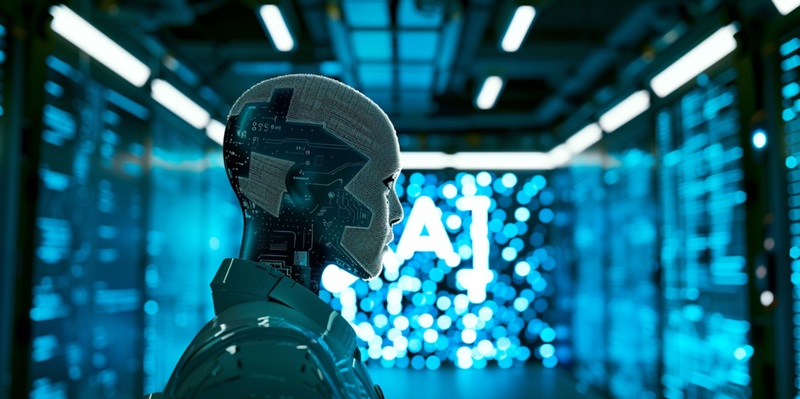Artificial intelligence (AI) is revolutionizing the electoral processes in democracies worldwide, blending progress with potential upheaval. Its rapid advancement brings a host of benefits such as improving the accuracy and efficiency of vote counting, enabling more sophisticated data analysis for campaigns, and even bolstering the security of electronic voting systems against cyber threats. However, the intrusion of AI into politics also poses significant risks. The potential for AI-driven misinformation campaigns, voter manipulation, and undermining the integrity of the electoral process through deepfakes or bots is a cause for concern. As AI continues to develop, it is critical for policymakers to strike a balance, ensuring AI’s implementation in electoral systems enhances democratic practices without compromising the foundational principles of free and fair elections. Navigating this fine line requires vigilant oversight and adaptive regulations to keep pace with AI’s ever-evolving capacities, balancing its advantages against the risks it poses to ensure the credibility of democratic elections remains uncompromised.
The Paradox of AI in Modern Elections
AI-Generated Content and Deepfakes in Politics
The progress in deep learning techniques has paved the way for the synthesis of hyper-realistic digital content known as deepfakes. These AI-generated images or videos are meticulously fabricated to the point of being nearly indistinguishable from genuine footage, setting the stage for unprecedented manipulation of public opinion. The potential of deepfakes to undermine trust in democratic institutions cannot be overstated. When political figures can be convincingly depicted as making statements they never did, the corrosive impact on public trust and the integrity of political discourse is of immense concern.
Simultaneously, AI has allowed for more targeted and personalized political messaging, by analyzing vast amounts of data to understand voter preferences. While these tools can aid campaigns in addressing voter concerns more effectively, the line between personalized campaigning and invasive manipulation remains worryingly blurred.
The Global AI Market and Its Intersection with Elections
As the AI market burgeons—with expectations to reach the multi-billion dollar mark in the near future—its inevitable integration into electoral mechanisms continues to expand. Its transformative effects on industries highlight AI’s profound capabilities in enhancing decision-making and automating complex processes. This is indicative of the potential efficiencies that AI could bring to election procedures, such as voter registration, the collation of results, and even fraud detection.
However, integrating AI into these systems not only has the potential to streamline operations but also introduces significant challenges regarding transparency and accountability. While the efficiency benefits cannot be discounted, ensuring that the application of AI respects the core democratic principles stands as a critical consideration.
Combating Misinformation and Upholding Election Integrity
The Spread of AI-Generated Misinformation
In the throes of election periods, AI-driven misinformation can significantly distort democratic discourse. Social networks, rife with customized and misleading content, rapidly disperse disinformation, amplifying societal divisions and obscuring political realities. This digital quagmire compels regulators to weigh the prospect of enforcing tougher regulations on political advertising and AI applications to safeguard the electoral process.
To combat the misinfo-demic, tech platforms are deploying countermeasures like fact-checking initiatives and labeling content sources. Such tools are part of a broader, essential effort to defend electoral integrity in the digital epoch. Cooperation across sectors is indispensable, as the stability of future elections hinges on the ability to navigate and neutralize AI-augmented disinformation campaigns.
Digital Literacy as a Countermeasure
In today’s digital age, voters must be equipped with the tools to differentiate between legitimate information and AI-manufactured content. Enhancing digital literacy is essential, as it empowers individuals to engage critically with information, an invaluable defense against AI-driven disinformation. This emphasizes the need for voters to adopt a proactive rather than a passive approach to consuming content.
As tech giants play a pivotal role in information dissemination, they find themselves at a philosophical crossroads. The balance between protecting free speech and mitigating the spread of misinformation is delicate. These companies hold substantial responsibility in safeguarding democratic processes by ensuring their platforms do not become conduits for harmful propaganda. As they steer the public conversation, their commitment to responsible stewardship is more crucial than ever. By upholding the integrity of the digital space, they can help maintain a healthy democracy.
Enhancing Electoral Operations and Security
AI in Voting Systems: EVMs and Security
The integration of Electronic Voting Machines (EVMs) and AI into voting processes symbolizes the future of elections. Yet cybersecurity weaknesses could compromise electoral integrity. It’s critical for these systems to be tamper-proof as well as accurate to maintain the democratic process.
As the utilization of such technologies expands, clear guidelines and high-security standards are essential to safeguard the sanctity of the ballot. Experts call for stringent security protocols and open audits to mitigate risks. If these systems are to gain public trust, they must demonstrate resilience against meddling and transparency in their functionality.
The increasing use of EVMs demands a concerted effort to ensure that people have faith in how votes are cast and counted. Failing to secure the electoral system can deeply undermine democratic participation. As the stakes are high, the establishment of uncompromised voting systems is a foundational aspect of preserving democracy.
The Balance Between AI Innovation and Protective Measures
The integration of AI into the electoral arena presents nations with the dual challenge of harnessing technological advancements and preserving the sanctity of the vote. This delicate balance hinges on a thorough grasp of AI’s virtues and vulnerabilities in elections.
To keep public confidence in digitalized voting systems, comprehensive testing and validation of AI tools are imperative. Authorities must also be forthcoming about the role of AI in electoral proceedings and remain alert to swiftly remedy any irregularities. Such transparency, coupled with a proactive stance on innovation, is vital for protecting the bedrock of democracy.
By adopting a continuous cycle of improvement and safeguarding, we can ensure that the democratic process remains unassailable in the face of an increasingly automated future. At the same time, a vigilant approach to monitoring AI-driven electoral systems will fortify the electorate’s trust, enabling a seamless blend of technology and democratic tradition.

